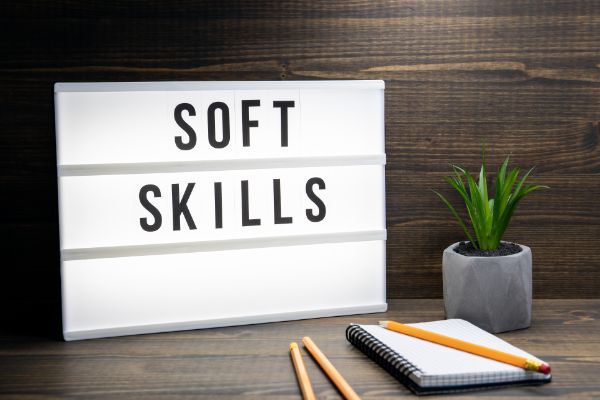Soft Skills Are Universal

Soft skills complement the hard skills that law students learn as the substantive law. Hard skills are those skills directly relevant to a job, field, or profession. Hard skills may be more quantifiable and easier to learn than soft skills. Soft skills are universal and necessary in circumstances that do not involve employment.
Soft skills complement hard skills. They are a combination of the following attributes, enabling people to operate in their environment, work well with co-workers, perform their best, and successfully achieve their goals.
- attitudes;
- career attributes;
- character or personality traits;
- communication skills;
- people skills;
- social skills;
- social intelligence quotients; and
- emotional intelligence quotients.
The Collins English Dictionary defines the term “soft skills” as “interpersonal skills such as the ability to communicate well with other people and to work on a team.”
Soft skills are defined by dictionary.com as “desirable qualities for certain forms of employment that do not depend on acquired knowledge: they include common sense, the ability to deal with people, and a positive flexible attitude.”
The Cambridge English Dictionary defines them as “people’s abilities to communicate with each other and work well together.”
Getting along with others, teamwork, communication, flexibility – are universal skills that help people find success, fulfillment, and happiness. In a legal context, soft skills help graduates strongly develop necessarily aspects of the practice of law that are not taught in traditional law school classes.
The California Desert Trial Academy (CDTA) believes that practical experience and certain “soft” skills coupled with substantive knowledge, provide the best opportunities for a successful, rewarding, and prosperous legal career.
CDTA teaches and emphasizes the development of the following soft skills:
- Negotiation skills
- Time management skills
- Writing skills
- Enterprise management skills
- Presentation skills
- Research skills
- Critical thinking skills
- Core values review
- Creative thinking skills
- Professionalism (including appearance and grooming skills)
- Ethics and professional conduct
Critical thinking skills; logical, clear and concise writing skills; effective reading skills; and persuasive presentation skills will all be beneficial in a student’s future success as a legal advocate.
At CDTA, we believe that a thorough study of California Bar test areas of legal study, examined regularly, and supplemented with skills, values, and historical perspective is a winning formula for educating, training, and developing extraordinary legal advocates. Call us today at (760) 342-0900 or find out more online here.


